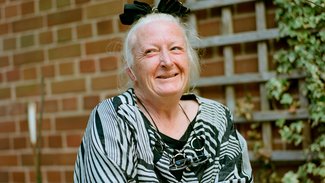Over 60,000 women and girls in Manchester have experienced extensive violence and abuse in their lifetime. To meet this challenge, all local authorities in Greater Manchester must work together to ensure the most marginalised women are included and involved in their Covid-19 recovery plans.
Following the National Commission on Domestic and Sexual Abuse and Multiple Disadvantage, Agenda and AVA (Against Violence and Abuse), worked in Greater Manchester to take forward some of the recommendations, supported by further funding from the Lloyds Bank Foundation for England and Wales.
The final report of the National Commission, Breaking Down The Barriers, warned of devastating consequences for women and their families because they are not able to get the support they need. It identified the need for gender and trauma-informed responses that understand the interconnected experiences women face when seeking help for violence and abuse, mental ill health, substance use, homelessness and motherhood. Read more here.
Tackling Women's Multiple Disadvantage in Greater Manchester
In response to these findings, Agenda and AVA (Against Violence and Abuse) worked with Greater Manchester Combined Authority officials, women’s sector organisations and women with lived experience in Greater Manchester (GM) to understand how the Commission’s recommendations could be achieved across the region.
Tackling Women’s Multiple Disadvantage in Greater Manchester highlights that around 60,000 women and girls in Greater Manchester have experienced extensive violence and abuse during their lifetime. They are more likely to live in poverty, over half of them have a mental health problem, one in five has been or is homeless and one in three face problems with alcohol. However, they often find themselves bounced between services because of the complexity of issues they face.
The briefing warns that women and girls facing disadvantage in Manchester have been hardest hit during the coronavirus outbreak. The pandemic has put even more women and girls at risk, and further deepened inequality.
It recommends that Greater Manchester must have women and girls at the heart of its response to Covid to ensure those at the sharpest end of inequality are supported and protected and able to move on with their lives.

Devolution and Women's Disadvantage
Building on the learning from this project, Agenda and AVA produced a further briefing with recommendations for change at the regional level set. It is aimed at decision makers, combined authorities, metro mayors and local authorities working to improve local government approaches to tackling multiple disadvantage in the lives of women and girls across England. It is particularly focused on metro mayoral regions, but will be of use for decision makers across local government with strategic decision-making responsibilities.
Further documents:


